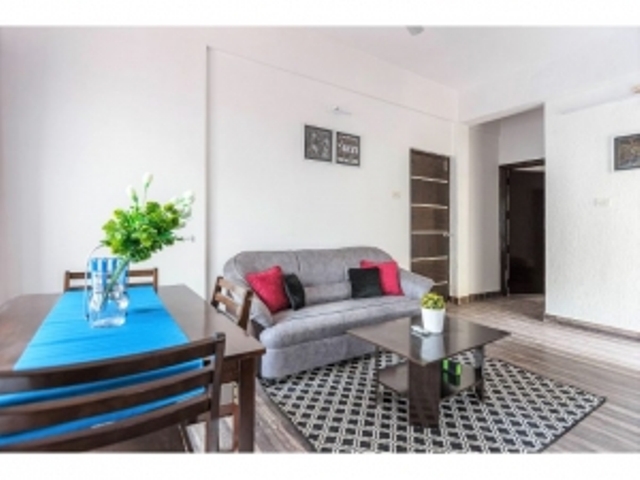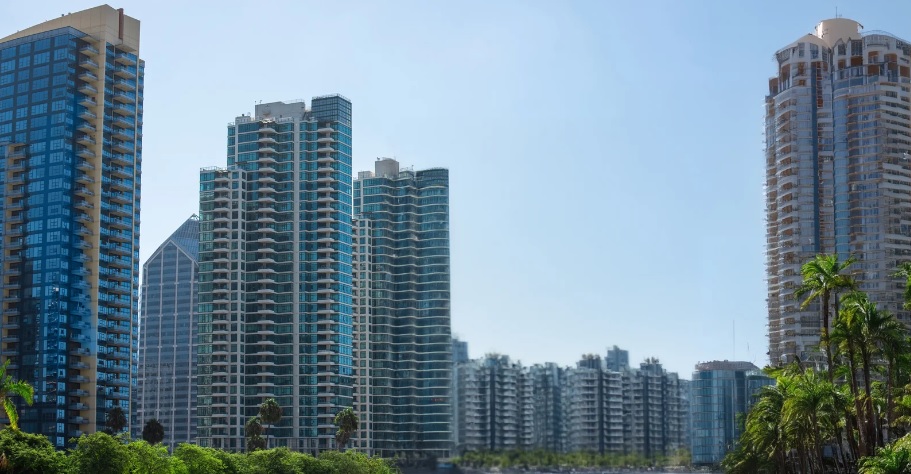Dubai’s real estate market has been a captivating narrative in recent years. Fueled by a vibrant tourism industry, strategic government interventions, and a welcoming environment for foreign investors, the market has witnessed remarkable growth. But what lies ahead? Let’s embark on a journey to explore the key trends shaping Dubai’s real estate landscape over the next five years.
A Trajectory of Growth: Anticipated Market Performance
Analysts predict a steady climb for Dubai’s real estate market over the next five years. This upward trajectory is driven by a confluence of factors: a robust local economy, a continuous influx of tourists, and a constant demand for housing due to population increase. Experts project an average annual growth rate ranging from 5% to 8%, with prime locations like Palm Jumeirah and Downtown Dubai potentially exceeding these figures. This growth, however, is unlikely to be uniform across all sectors and property types.
Shifting Tides: The Rise of Mid-Range Properties
Traditionally, luxury properties have reigned supreme in Dubai’s real estate market. However, a new trend is emerging – the rise of mid-range properties. This shift is fueled by the burgeoning middle class within Dubai and a growing number of young professionals seeking affordable yet good quality housing options. This trend is particularly evident in areas like Dubai Marina and Jumeirah Lake Towers, where a wider range of apartment sizes and price points are becoming available. Investors seeking stable rental yields might find mid-range apartments in areas with good connectivity to transportation networks particularly attractive.
A Focus on Family-Friendly Communities: Catering to the Evolving Demographic
As Dubai attracts more families seeking a permanent base, the demand for properties in family-friendly communities is expected to surge. Areas like Jumeirah Village Circle and Dubai Hills Estate, renowned for their excellent schools, parks, and community amenities, are likely to see increased interest from both residents and investors. Developers are also recognizing this growing demand and are actively creating new communities with family-oriented facilities, further bolstering this segment of the market.
Co-Living and Short-Term Rentals: Capitalizing on New Trends
The growing popularity of co-living spaces and short-term rentals is another trend to keep an eye on. Co-living caters to young professionals seeking affordable and social living arrangements, while short-term rentals benefit from Dubai’s thriving tourism industry. Dubai International Financial Centre (DIFC) and Dubai Silicon Oasis (DSO) are prime examples of areas witnessing a rise in co-living spaces due to their focus on attracting young professionals and entrepreneurs. Investors looking for high rental yields with potentially lower upfront costs might find these options appealing. However, it’s crucial to understand the legalities and regulations associated with short-term rentals before venturing into this space.
Embracing Innovation: The Role of PropTech
Dubai is a city at the forefront of innovation, and this is reflected in its real estate market as well. The use of PropTech (property technology) is expected to grow significantly. This includes online property search platforms with advanced filtering options and virtual tours that provide immersive experiences for potential buyers and renters. Additionally, data-driven analytics tools are becoming increasingly sophisticated, enabling investors to make informed decisions based on market trends, rental yields, and vacancy rates in specific areas.
Government Initiatives: Shaping the Market Landscape
The Dubai government plays a proactive role in shaping the real estate market. Initiatives like introducing long-term visas (five and ten years) and easing foreign ownership restrictions are expected to continue attracting investors, particularly those seeking a permanent residence in Dubai. Additionally, the government’s focus on developing new infrastructure projects, like Dubai Expo 2030, will create new investment opportunities in specific areas. These infrastructure projects often lead to increased demand for housing and commercial spaces in their vicinity, offering astute investors the chance to capitalize on early opportunities.
A Sector-Wise Analysis: Anticipated Performance
The growth story of Dubai’s real estate market isn’t uniform across all sectors. Here’s a closer look at the anticipated performance of each major segment:
-
Residential Market: Continued growth is expected, driven by a robust economy, population increase, and a growing demand for family-friendly communities. Apartments in prime locations and mid-range properties in well-connected areas with good amenities are likely to see the highest demand. Investors should also consider the potential impact of upcoming mega-developments on specific areas when making investment decisions.
-
Commercial Market: The demand for office space is expected to rise due to Dubai’s growing importance as a global business hub. Areas with excellent connectivity to transportation networks and proximity to business districts like DIFC and Dubai Media City will be most attractive to businesses seeking office space. Additionally, the rise of co-working spaces presents an interesting opportunity for niche investors.
-
Retail Market: The retail sector might see slower growth due to the rise of e-commerce. However, this doesn’t paint the entire picture. Well-located retail spaces in popular areas with a strong tourism presence, such as Dubai Mall and Mall of the Emirates, could still perform well. Additionally, the concept of “experiential retail,” which combines shopping with entertainment and leisure activities, is gaining traction. Investors who identify shopping centers or high-street locations embracing this trend could potentially benefit.
Investing in Dubai Real Estate: A Calculated Approach
While Dubai’s real estate market offers promising opportunities, investors should always prioritize thorough research and due diligence before making any investment decisions. Understanding market trends, potential risks (such as fluctuations in oil prices or global economic downturns), and legal considerations like property registration fees and service charges is crucial for success. Consulting with reputable real estate agents with a strong understanding of specific neighborhoods and market segments is highly recommended. Additionally, seeking advice from financial advisors can be beneficial, especially when considering financing options or navigating tax implications.
Beyond the Bricks and Mortar: Additional Considerations
Investing in Dubai real estate extends beyond acquiring a property. Here are some additional factors to consider:
-
Rental Management: For investors choosing to rent out their properties, property management services can handle tenant relations, maintenance issues, and rental collections. This can be particularly relevant for those residing outside of Dubai.
-
Exit Strategies: Having a clear exit strategy is crucial. Understanding the different ways to exit the market, such as selling the property or transferring ownership to family members, allows investors to plan effectively for the future.
-
Long-Term Vision: Real estate investment is a long-term game. Investors should approach Dubai’s market with a long-term vision, considering factors like potential future developments, infrastructure projects, and demographic shifts that could impact property values in specific areas.
The Final Chapter: A Thriving Market Beckons
Dubai’s real estate market is poised for continued growth over the next five years. With a strong underlying economy, government initiatives promoting foreign investment, and a diverse range of investment opportunities across various sectors, Dubai remains a top destination for global real estate investors. By staying informed about market trends, conducting thorough research, and making informed decisions, investors can capitalize on the exciting prospects that Dubai’s real estate market offers. This dynamic and innovative market presents a compelling opportunity for those seeking stable rental yields, capital appreciation, or a chance to be part of a thriving and ever-evolving city.




